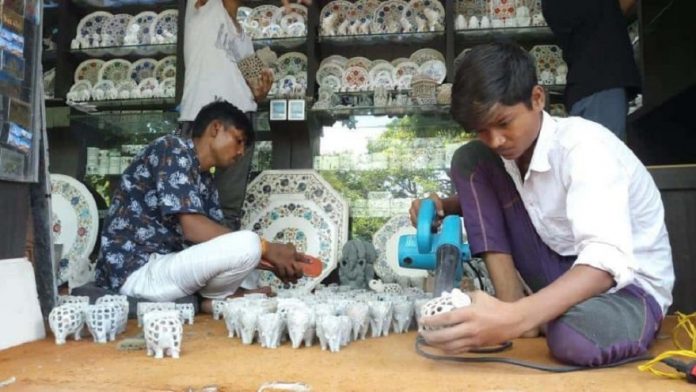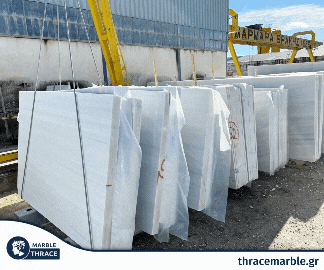The decision to reopen the Taj Mahal for tourists from September 21 has given a ray of hope to Agra’s marble traders after the Covid-9 pandemic had all but flattened their business.
“The marble work business in Agra had suffered a setback even before the lockdown. There used to be Chinese tourists in large numbers in February but visas were disallowed to Chinese tourists as corona was at its peak in China during that phase,” said Prahlad Agarwal, a prominent marble trader of Agra and Agra Tourist Welfare Chamber president.
“Besides, there used to be many tourists from Iran where the New Year is celebrated in the first quarter of the year but they too were in the grip of coronavirus and could not come to Agra this year and thus, the marble trade in Agra suffered,” Agarwal stated.
However, despite markets opening now, marble emporium owners say business is still tepid as there are few tourists in the city.
“Road and rail transport is not at its optimum. With the end of weekend closures we expect domestic visitors from the city and in and around Delhi on weekend trips to Agra,” Agarwal opined.
“Still it is a tough track to revival as international flights are still not functioning. We need foreign tourists for handicraft trade, especially marble.” said Agarwal.
“The US government has issued an advisory against visiting India due to Covid-19 pandemic. The European nations pay heed to such advisories thus we have to work around this advisory if we hope to revive tourism,” he said.
“The business through emporiums is still to pick up although exports are picking up at a steady pace with shipments moving. Things have improved in European nations and Christmas is only a few months away. Thus we can see improvement in exports but a major component of trade through emporiums is dependent upon the Taj opening and staying open,” he said.
There are about 30,000 to 35,000 families relying on marble work in Agra. The skill of working on marble is mostly hereditary with the son following the footsteps of the father.
“However, this corona pandemic has caused erosion in this hereditary trend, and unable to find suitable returns, many artisans are deviating from their traditional source of income,” said Agarwal.
Source: www.hindustantimes.com








































